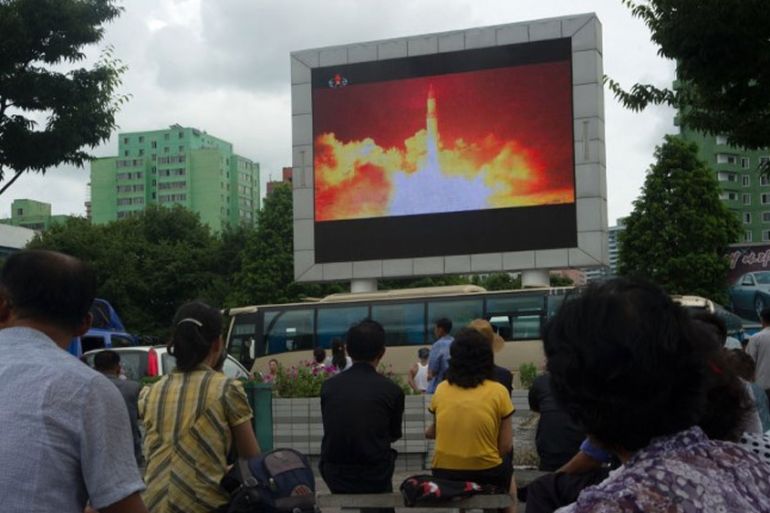US unveils tougher new UN sanctions on North Korea
Security Council due to vote on Saturday on a US draft resolution aiming to deprive Pyongyang of $1bn in export revenue.

The United States on Friday presented to the UN Security Council a draft resolution toughening sanctions on North Korea, aiming to deprive Pyongyang of $1bn in export revenue, a council diplomat said.
The council is expected to vote on Saturday on the measures that include a ban on exports of coal, iron and iron ore, lead and lead ore, as well as seafood by the cash-starved state.
The US has been negotiating the tougher measures with China, North Korea’s main trading partner and ally, since Pyongyang launched its first intercontinental ballistic missile on July 4.
A second launch on July 28 further raised alarm about Pyongyang’s drive to develop a missile capable of hitting the US mainland.
If implemented by all countries, the ban could deprive Pyongyang of roughly a third of its export earnings, estimated at $3bn per year, according to a diplomat familiar with the negotiations.
READ MORE: Three things to know about North Korea’s missile tests
The draft text would also prevent North Korea from increasing the number of workers it sends abroad, prohibit all new joint ventures and ban new investment in the current joint companies.
The diplomat indicated that China and Russia were prepared to support the draft resolution, which would be the seventh set of UN sanctions imposed on North Korea since it first carried out a nuclear test in 2006.
“We have high confidence that they will be on board with the broad outlines of this resolution,” said the diplomat, who briefed reporters on the contents of the draft.
The US requested a vote at the Security Council at 11am (1500 GMT) Saturday, but the meeting was not immediately confirmed.
No ban on oil
The proposed resolution would add North Korea’s Foreign Trade Bank, which manages foreign exchange, to a United Nations sanctions blacklist that imposes an assets freeze.
It would also tighten trade restrictions on technology to prevent North Korea from acquiring items that could be used for its military programmes.
North Korean vessels that are caught violating UN resolutions would be banned from entering ports in all countries under the proposed measure.
|
|
While the draft text would expand sanctions, it stopped short of curbing oil deliveries to North Korea – a move that would have dealt a serious blow to the economy.
Russia, which like China is a veto-wielding council member, had warned that it would not support sanctions that would worsen North Korea’s humanitarian crisis.
A UN resolution needs nine security council votes in favour, and no vetoes by the US, China, Russia, France or Britain, to be adopted.
The US and its European allies, as well as Japan and South Korea, have argued that tougher sanctions are needed to force North Korea to come to the negotiating table to discuss a halt to its military programmes.
China and Russia have meanwhile insisted that sanctions alone will not change Pyongyang’s behaviour and that talks are needed to address the crisis.
As negotiations at the UN entered the final stretch, US Secretary of State Rex Tillerson declared that Washington was not seeking regime change in North Korea and was willing to talk to Pyongyang.
|
|